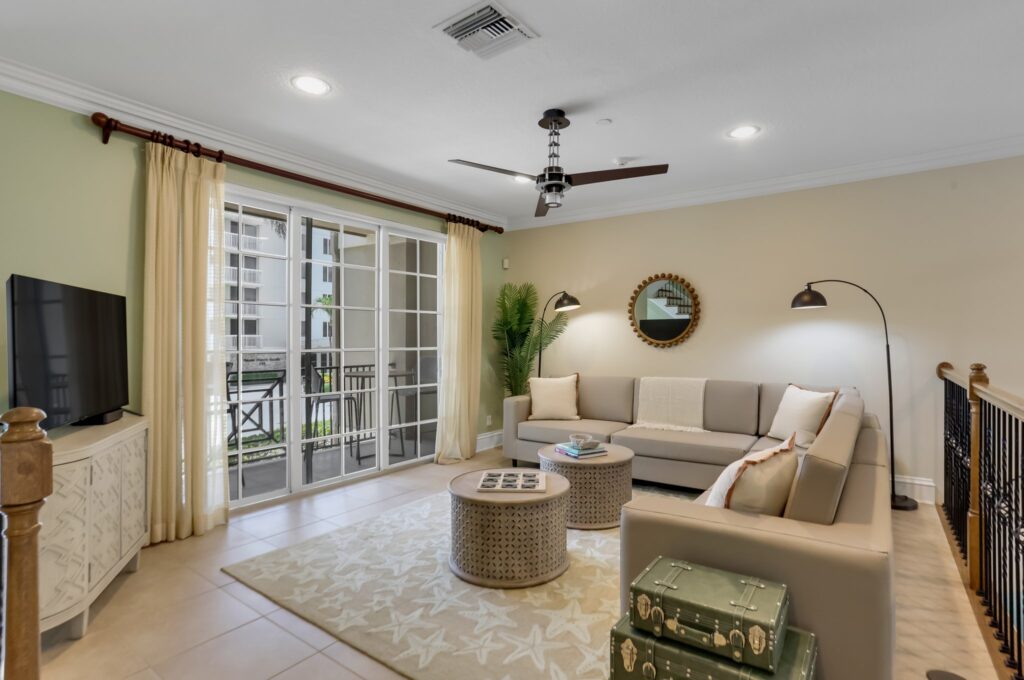Bipolar Disorder Treatment in West Palm Beach, FL
At Seaside Wellness, we provide compassionate, evidence-based care for individuals living with bipolar disorder. Our programs are designed to help clients find stability, balance, and lasting relief from the extreme mood shifts that define this condition. Through a combination of therapy, medication management, and holistic approaches, we guide each person toward emotional wellness and renewed quality of life.
Find balance and healing with expert bipolar disorder treatment in West Palm Beach. At Seaside Wellness, we combine therapy, medication, and holistic care to help you regain stability and peace of mind.


Understanding the Root of Mood Instability
What Is Bipolar Disorder?
Bipolar disorder is a chronic mental health condition marked by intense mood swings that alternate between emotional highs (mania or hypomania) and lows (depression). These shifts affect energy, focus, sleep, and behavior, often disrupting daily life and relationships. There are several forms of bipolar disorders:
- Bipolar I, characterized by severe manic episodes that may require hospitalizatio
- Bipolar II, involving milder hypomanic episodes and recurring depressive periods
- Cyclothymic Disorder, marked by chronic mood fluctuations that are less intense but persistent over time
While the condition can be challenging, it is highly treatable with the right combination of medical, psychological, and lifestyle support. According to the National Institute of Mental Health (NIMH), bipolar disorder affects approximately 2.8% of U.S. adults each year, with proper treatment significantly reducing symptom severity and improving quality of life.
At Seaside Wellness, our clinicians specialize in helping individuals to regain control and maintain stability in their mental health journey
Signs and Symptoms of a bipolar disorder
Bipolar disorder manifests differently for everyone, but symptoms generally fall into two main categories, manic (or hypomanic) and depressive episodes. Recognizing these shifts early helps ensure effective, evidence-based treatment and long-term mood stability.
Manic or Hypomanic Symptoms
- Unusually high energy, restlessness, or reduced need for sleep
- Racing thoughts and rapid speech
- Inflated self-esteem or grandiosity
- Engaging in risky or impulsive behaviors (spending, sex, substance use)
- Feeling overly optimistic, euphoric, or easily irritable
Depressive Symptoms
- Persistent sadness or hopelessness
- Fatigue, low motivation, or loss of interest in activities
- Changes in sleep or appetite patterns
- Difficulty concentrating or making decisions
- Thoughts of self-harm or worthlessness
According to the National Institute of Mental Health (NIMH), bipolar disorder often begins in late adolescence or early adulthood, with early detection and treatment leading to significantly better outcomes.
Understanding the effects of untreated bipolar disorder
When bipolar disorder goes untreated, the emotional highs and lows can intensify, leading to major disruptions in daily life, relationships, and overall health. Over time, unmanaged symptoms can become more severe and harder to control, underscoring the importance of early and consistent treatment.
Short-Term Effects
- Sudden mood swings between euphoria and depression
- Sleep disturbances or insomnia during manic phases
- Impulsive or risky behaviors that lead to financial or personal problems
- Poor focus, agitation, and decreased work or academic performance
- Strained relationships due to unpredictable mood changes
Long-Term Effects
- Increased risk of substance abuse or self-medication
- Suicidal thoughts or behaviors during depressive episodes
- Development of anxiety or other co-occurring mental health disorders
- Long-term impact on brain chemistry and emotional regulation
- Social isolation and difficulty maintaining employment or stability
According to the National Institute of Mental Health (NIMH), individuals with untreated bipolar disorder are at a significantly higher risk of suicide and hospitalization, emphasizing the need for timely, ongoing care. At Seaside, our integrated treatment approach helps clients stabilize mood patterns, regain emotional balance, and rebuild confidence.
Get started today
Bipolar disorder treatment at seaside
At Seaside Wellness, we offer personalized, evidence-based bipolar disorder treatment that addresses both the emotional and physiological aspects of the condition. Each client receives a tailored plan designed to promote mood stability, emotional regulation, and long-term well-being through a combination of clinical therapies and holistic care.
Individual Therapy (CBT & DBT)
One-on-one therapy helps clients identify triggers, challenge distorted thinking, and develop effective coping strategies to manage both manic and depressive episodes.
Group Therapy
Clients connect with others who understand their challenges, sharing experiences and building stronger communication and emotional resilience skills.
Family Support
Because bipolar disorder impacts the entire household, family therapy fosters understanding, healthy boundaries, and stronger communication at home.
Medication Management
Our medical team provides thorough psychiatric evaluations and ongoing medication oversight to ensure safe and effective mood stabilization.
Holistic Therapies
Mindfulness, yoga, meditation, and other holistic approaches reduce stress, improve emotional balance, and support long-term mental health recovery.
Mind-Body Approaches
Incorporating practices like mindfulness, movement, and relaxation therapy helps reduce stress and restore harmony between mind and body.
We believe recovery from PTSD is possible through a blend of modern clinical treatments and compassionate support. Each therapy is tailored to the individual, ensuring the most effective path to lasting recovery.
Our bipolar disorder treatment programs
At Seaside Wellness, we understand that every individual’s journey with bipolar disorder is different. That’s why we offer multiple levels of care, ensuring clients receive the right amount of structure, support, and flexibility throughout their recovery. Whether you need intensive, in-person treatment or a step-down virtual option, our programs are designed to meet you where you are and guide you toward long-term stability.
Dual Diagnosis and Bipolar disorder
Many individuals with bipolar disorder also experience co-occurring mental health or substance use disorders. These overlapping conditions, such as anxiety, depression, or drug and alcohol dependency can make mood stabilization more difficult without integrated care.
At Seaside Wellness, our dual diagnosis program treats the whole person by addressing both the emotional and chemical components of bipolar disorder. Through a combination of psychiatric support, individual and group therapy, and addiction counseling, clients learn to understand how their conditions interact and how to manage both effectively.
Our clinicians specialize in identifying underlying triggers and teaching healthy coping mechanisms that promote emotional balance. By treating co-occurring conditions alongside bipolar disorder, we help clients reduce relapse risk, improve daily functioning, and strengthen long-term recovery outcomes.



Expert Care, Peaceful Setting, Proven Results
Why Choose Seaside for ptsd Treatment?
At Seaside Wellness, we understand that healing from a bipolar disorder demands a nurturing environment where emotional healing and clinical expertise work hand in hand.
Our multidisciplinary team of psychiatrists, therapists, and holistic practitioners collaborates to create individualized treatment plans tailored to each client’s needs. We combine evidence-based therapies with compassionate, person-centered care to help clients regain control of their emotions, rebuild confidence, and rediscover balance.
Located in peaceful West Palm Beach, Seaside offers a tranquil atmosphere designed to support reflection, focus, and long-term healing. Whether you’re seeking residential or outpatient care, our programs provide the structure and encouragement needed to achieve lasting emotional stability.
At Seaside, you’re not just receiving treatment, you’re joining a community committed to empowerment, connection, and lifelong recovery.
About us
Therapies
Most frequently asked questions
What is bipolar disorder?
Bipolar disorder is a mood disorder characterized by episodes of mania, hypomania, and depression. These mood shifts affect energy, behavior, and thinking patterns. At Seaside Wellness, we provide expert assessment, therapy, and medication management to help clients achieve mood stability and improve daily functioning.
What causes bipolar disorder?
While there isn’t a single cause, bipolar disorder often results from a combination of genetic, biological, and environmental factors. Imbalances in brain chemistry and family history can play a role. At Seaside, treatment focuses on both medical stabilization and behavioral strategies to support lasting recovery.
What are the early signs of bipolar disorder?
Early symptoms may include sudden mood changes, sleep disturbances, impulsive behavior, and periods of extreme energy followed by deep sadness. Recognizing these signs early can help prevent episodes from worsening and improve treatment outcomes.
Can bipolar disorder be treated without medication?
In some cases, therapy alone can help manage symptoms, especially for milder forms. However, most individuals benefit from a combination of medication and psychotherapy. At Seaside, our psychiatrists tailor medication plans while therapists provide tools for emotional regulation and self-awareness.
What types of therapy are most effective for bipolar disorder?
Cognitive Behavioral Therapy (CBT) and Dialectical Behavior Therapy (DBT) are particularly effective. They help clients identify thought patterns, manage triggers, and reduce impulsive behaviors. Seaside also incorporates family therapy, mindfulness, and holistic therapies for a complete healing experience.
What’s the difference between Bipolar I and Bipolar II?
Bipolar I involves severe manic episodes that may require hospitalization, while Bipolar II features milder hypomanic episodes with longer depressive periods. Both can disrupt daily life and benefit from structured treatment. Seaside’s clinical team specializes in stabilizing both types with personalized care plans.
Is bipolar disorder the same as depression?
No. While bipolar disorder includes depressive episodes, it also involves periods of elevated mood and energy. Because symptoms can overlap, a professional diagnosis is essential to determine the right treatment path, something Seaside’s licensed clinicians provide through comprehensive evaluations.
What is dual diagnosis in bipolar disorder treatment?
A dual diagnosis means an individual has both bipolar disorder and another condition, such as substance abuse or anxiety. Treating both together improves long-term outcomes. Seaside’s integrated dual diagnosis program focuses on addressing the emotional, behavioral, and biological roots of both conditions simultaneously.
How long does treatment for bipolar disorder take?
Treatment duration varies by individual. Some begin with residential care for 30–60 days, then transition to outpatient or virtual programs. Seaside’s continuum of care ensures that each client receives support at every stage, from stabilization to aftercare and beyond.
Can lifestyle changes help manage bipolar disorder?
Absolutely. Maintaining a structured routine, sleeping consistently, exercising, and reducing stress all support mood regulation. Seaside’s therapists help clients build sustainable habits and integrate mind-body practices that enhance long-term stability.
What happens after completing treatment?
Recovery doesn’t stop at discharge. Seaside provides aftercare planning and connects clients with alumni programs and ongoing therapy to maintain progress. Long-term follow-up care is key to preventing relapse and promoting emotional balance.
Does insurance cover bipolar disorder treatment?
Yes. Seaside Wellness accepts most major insurance providers, including Aetna, Cigna, Blue Cross Blue Shield, United Healthcare, and others. Our admissions team helps verify benefits and guide clients through the coverage process. Call us at (855) 416-5648 to check your insurance coverage.
100% confidential, free assessment
Take the First Step Toward Relief
Living with bipolar disorder can feel unpredictable and exhausting, but you don’t have to manage it alone. Our admissions team is available 24/7 to answer your questions, explain treatment options, and help you find the right level of care.
By completing our confidential form, you’ll be connected with a compassionate specialist who will listen to your story and guide you toward a personalized treatment plan that promotes balance and long-term emotional wellness. Your privacy is always protected. Reaching out today could be the first step toward a more stable, peaceful, and fulfilling life.
